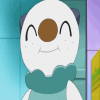| View previous topic :: View next topic |
| Author |
Message |
|
|
harminia
 Joined: 24 Aug 2015
Joined: 24 Aug 2015
Posts: 2064
Location: australia
|
 Posted: Thu Dec 14, 2023 5:26 pm Posted: Thu Dec 14, 2023 5:26 pm
|
 |
|
|
<-Howl's Moving Castle hater
Part of the vocal minority (we love to tell people how much we dislike the film)
|
| Back to top |
|
|
|
Cho_Desu
 Joined: 27 Dec 2022
Joined: 27 Dec 2022
Posts: 244
|
 Posted: Thu Dec 14, 2023 5:49 pm Posted: Thu Dec 14, 2023 5:49 pm
|
 |
|
|
I can enjoy thematically driven stories perfectly fine, but The Boy and the Heron just came off to me as slapdash and inconsistent, unsure of what it truly wanted to focus on, and always with one foot firmly placed in past Ghibli/Miyazaki works. (The many "callbacks" mainly just made me wish I were watching one of those movies instead.)
Without spoiling specifics... If you're going to devote a bunch of scenes to subplots, they need enough impact to feel worth the cost of taking away time from developing the narrative's core. Similarly, if you're going to devote long stretches of time to quiet buildup, it'd be great to have something of interest on-screen for the audience to latch on to. If you're going to hype up a big mystery for such a long time, it shouldn't be odd for the audience to expect a satisfying payoff by the end. And finally, if you want a dramatic scene in which characters shout the culmination of their personal arcs, you've got to build it up properly—otherwise the conclusion feels forced. YMMV, as always. But my general complaint is less "I don't get what's going on," and more "Okay, that happened. And I get it can mean X, Y, or Z. But why should I care?"
I wonder how much more everything would've gelled with me if the film ditched having an overarching narrative entirely, and simply opted for a series of vignettes a la Fantasia? Here's a skit about the parakeets, here's one about the spirit marshmallows, here's one about a fisherwoman, here's one about a boy finding his dead mom in another realm, here's one about a goblin man in a heron suit, here's one about a bunch of old ladies at a mansion, here's one about an old man stacking blocks, etc. No need to attempt connecting them all together—you can just let the audience focus on the feelings the vignettes are trying to get across.
|
| Back to top |
|
|
|
|
jdnation
Joined: 15 May 2007
Posts: 2142
|
 Posted: Thu Dec 14, 2023 6:45 pm Posted: Thu Dec 14, 2023 6:45 pm
|
 |
|
|
I don't think it's his worst film, by virtue of the fact that I was at least interested in it throughout it, whereas Porco Rosso, and (sorry) Totoro, are kind of boring past the initial watch.
While I'm mixed about Boy & the Heron, something about this film stayed with me and still has me thinking about it - primarily it's metaphors, like I'm missing something but it's there buried in the subtext.
It's definitely one for the art-house crowd, but I think in terms of the mainstream, it's definitely a personal film by Miyazaki and not one that is that interested in entertaining general audiences.
The film starts out as the closest thing Studio Ghibli could've had as a thriller/horror film that eventually transitioned into something more like standard Ghibli fantasy, but maintaining the disturbing juxtapositions of creature and character design that are deliberately intended to be uncomfortable. The ending could've definitely used more of an epilogue, as I felt it was abrupt.
You could read into it as much about allusions to WWII Japan and Germany and the fall of empires, as you could about Miyazaki wanting to hand over the estate of Studio Ghibli that he helped build to a successor, but it didn't work out.
But at it's core there is a message about the malicious nature that lies inside each of us, and why humanity cannot simply build paradise by it's own hands or devices, by force or otherwise.
There is definitely plenty there to talk about and discuss, and that alone for me makes it his most interesting work by far, even if it doesn't rank amongst my favorites like Mononoke, Howl's or Spirited Away.
|
| Back to top |
|
|
|
Gem-Bug
 Joined: 10 Nov 2018
Joined: 10 Nov 2018
Posts: 1348
|
 Posted: Thu Dec 14, 2023 7:28 pm Posted: Thu Dec 14, 2023 7:28 pm
|
 |
|
| harminia wrote: | | <-Howl's Moving Castle hater
Part of the vocal minority (we love to tell people how much we dislike the film) |
I didn't hate it, but of all his films I've seen, it was the one I was most excited to see and had the highest hopes for. Looked stunning, of course, but I was let down in most other aspects.
|
| Back to top |
|
|
|
Cutiebunny
 Joined: 18 Apr 2010
Joined: 18 Apr 2010
Posts: 1772
|
 Posted: Thu Dec 14, 2023 10:05 pm Posted: Thu Dec 14, 2023 10:05 pm
|
 |
|
|
This...was a movie. Not a great movie plot-wise, although the animation was gorgeous...especially those backgrounds. Wonder if Studio Ghibli still handpaints those. That seems to be the last bastion of hand drawn artwork in (some) anime, or at least it has been for some studios like Madhouse.
I was ok with the Buddhism themes but I'm not sure the birds really did a good job expressing that. Also thought the father's relationship with the aunt was a bit off as well. I get that it's post-WWII and maybe there was some government decree regarding people getting (it) on with their lives, but dad seemed to have wasted absolutely no time between relationships.
So...dunno...just an average Ghibli film for me.
|
| Back to top |
|
|
|
|
frillish
Joined: 25 Oct 2019
Posts: 2
|
 Posted: Thu Dec 14, 2023 10:13 pm Posted: Thu Dec 14, 2023 10:13 pm
|
 |
|
|
Between reviews of this and Godzilla, I feel like a crazy person, like I've been watching entirely different movies than everyone else is watching. This movie is good, it's beautiful, and it's a wonderful ending to Miyazaki's career. It's a story of a boy overcoming trauma at its face value, and a story of the friendship of the Studio Ghibli founders underneath.
|
| Back to top |
|
|
|
AiddonValentine
 Joined: 07 Aug 2006
Joined: 07 Aug 2006
Posts: 2366
|
 Posted: Thu Dec 14, 2023 11:07 pm Posted: Thu Dec 14, 2023 11:07 pm
|
 |
|
|
Ah, Lynzee just casually throwing a grenade to start things off. Never a dull moment!
The movie definitely depends on how much you know about Ghibli past and present. That's probably the reason a lot of people have been left in the cold
|
| Back to top |
|
|
|
blahmoomoo
 Subscriber
Joined: 27 Jan 2020
Posts: 510
|
 Posted: Thu Dec 14, 2023 11:51 pm Posted: Thu Dec 14, 2023 11:51 pm
|
 |
|
| Cutiebunny wrote: | | Also thought the father's relationship with the aunt was a bit off as well. I get that it's post-WWII and maybe there was some government decree regarding people getting (it) on with their lives, but dad seemed to have wasted absolutely no time between relationships. |
I wonder if the aunt didn't have a husband and her father died or news came back that her first husband died in the war around the same time as the fire bombings. I don't know much about Japanese society at the time, but I could see that being a situation where they would agree to remarry to keep the family together (especially if she wasn't allowed to be the head of the house in that era).
That doesn't explain her being pregnant apparently so soon after they remarried (assuming it's his), of course. That's rather fishy regardless of why the husband would remarry within the family.
|
| Back to top |
|
|
|
|
JustMonika
Joined: 17 Jan 2022
Posts: 1181
|
 Posted: Fri Dec 15, 2023 1:41 am Posted: Fri Dec 15, 2023 1:41 am
|
 |
|
|
Sounds similar to my hot take of thinking that GTA is the worst game franchise I've ever made.
|
| Back to top |
|
|
|
yuna49
 Joined: 27 Aug 2008
Joined: 27 Aug 2008
Posts: 3804
|
 Posted: Fri Dec 15, 2023 11:05 am Posted: Fri Dec 15, 2023 11:05 am
|
 |
|
|
I don't listen to podcasts (provide a script please for those of us who still read), but I'm glad my overall negative opinion of The Boy and The Heron is shared by others. Much of the movie seemed like a paean to animation rather than telling a story. We see the boy slowly dress himself twice with each piece of clothing's movements lovingly detailed. We have scenes with the trademark Ghibli background details, like those in the library. What we don't have is a coherent story.
|
| Back to top |
|
|
|
|
jdnation
Joined: 15 May 2007
Posts: 2142
|
 Posted: Fri Dec 15, 2023 11:10 am Posted: Fri Dec 15, 2023 11:10 am
|
 |
|
|
In the past and older societies, it wasn't odd, but practically an honorable duty to remarry within the family if one was a widow or widower.
Men needed wives to look after their children. Women were dependent on men. So if your sister-in-law was still single, to be wed to her was not an oddity. It kept inter-family relations strong, and you trusted relations to look after your own children who'd be her nephews and nieces. More ideal than a stranger and getting acquainted with a whole other family and whatever reputational politics or wealth squabbles etc. would be involved.
We take marriage and easy divorce for granted today, but in the past and older societies these would be very involved procedures involving entire families and dowries and the politics of social standing suitability and match-making etc.
"Romantic Love" was at the bottom of a long list of other more important things to consider.
|
| Back to top |
|
|
|
Triltaison
 Joined: 03 Jul 2011
Joined: 03 Jul 2011
Posts: 801
|
 Posted: Fri Dec 15, 2023 12:31 pm Posted: Fri Dec 15, 2023 12:31 pm
|
 |
|
| jdnation wrote: | | "Romantic Love" was at the bottom of a long list of other more important things to consider. |
Yeah, the whole marrying the aunt thing didn't strike me as unusual at all. Seems a weird thing to get hung up on because this was a super common thing to do when the draft was still a thing. Especially if a widow/widower was left behind with a pregnancy/baby, and both parties could be killed at a moment's notice being in a warzone.
My grandmother's first husband died in battle in WW2, but she had a baby to take care of in the '40s on a teacher's salary so she married again almost immediately to ensure that baby got food. New husband wanted a baby for a legacy before he got drafted too (in the event he also died). Many years later, my boyfriend's mother (she's about 70 right now) was widowed after her first husband died suddenly. She was left with a baby and ended up marrying her husband's brother for simplicity's sake with family estates. It's not really that weird.
Japan also has its system of heirs being adopted into larger and more notable families. Considering the huge house belonging to the aunt's family (and that the aunt was living in it as the head instead of a male or older authority figure), I assumed Mahito's dad joined into the mother's family and was already anticipated to be the new heir. So marrying into the branch again would further strengthen that connection.
There were several issues, but the aunt wasn't one.
|
| Back to top |
|
|
|
|
Impermanence
Joined: 09 Oct 2011
Posts: 19
|
 Posted: Fri Dec 15, 2023 2:56 pm Posted: Fri Dec 15, 2023 2:56 pm
|
 |
|
|
Yes. It's his worst and most incoherent film.
The fact that we're reliant on metatext to contextualize and read the tea leaves about what he might have been trying to portray is a sure sign that he did something wrong.
Once I realized that I was no longer enjoying myself about twenty minutes into the 'tower', I started trying to approach it all from a metaphor-seeking perspective, but nothing was really making itself apparent - nor to my six peers, who had to sheepishly admit after the film that they were completely lost, and didn't know what to think of it.
It rambles from thought to thought, introducing ideas and then discarding them, while paying off moments that weren't given enough time to breathe. As a result, there is very little narrative weight, as the stakes are poorly defined. Closely interrogating any particular plot thread makes most of them fall apart, as it doesn't put in any of the legwork into making any of these disparate elements connect in any meaningful way.
It's got some wonderful moments of artistic spectacle, and I don't doubt that it has strong personal meaning to Miyazaki - but he didn't extend even an ounce of effort into making it consumable to a general audience, and that narrative hostility is on clear display.
Most things are delivered by telling rather than showing. Why, given what we know, does the movie have any right to pay off such things as:
* The heron-man being Mahito's "friend"? He's done next to nothing other than try to deceive and murder him along the way, then have a completely uncharacteristic about-face.
* His stepmother displaying hatred of him, then forgiving him within the span of a few seconds, neither of which feel earned, as their relationship wasn't given enough screentime to actually establish either.
Moreover,
* Why does his mother's powers not work as they draw nearer to the inner sanctum, other than 'because?'
* Why does the world accept his stepmother, but reject him?
* Why introduce the shades that can't kill, and do nothing with them?
* Why, if they entered at the same time, is the old-woman-turned-fishmonger rolled back to her youth? There's an in-world explanation for his mother, but this woman's existence is rife with inconsistencies.
* What makes some of the stones impure, but others pure?
* Why does the bird king exist at all?
There's so much to unpack here that isn't easily unpackable without reading interviews about what the heck Miyazaki was going for, and that weakens the piece. It's perfectly fine to have metaphor-driven media, but it needs to deliver a coherent narrative for the audience even without them - this one didn't come close.
I can't help but feel there's some Miyazaki worship going on by film critics, and they're mistaking clumsy construction for depth.
What a muddy, awful experience. On the plus side, it makes Ponyo look coherent.
|
| Back to top |
|
|
|
Blood-
 Bargain Hunter
 Joined: 07 Mar 2009
Joined: 07 Mar 2009
Posts: 24355
|
 Posted: Fri Dec 15, 2023 6:15 pm Posted: Fri Dec 15, 2023 6:15 pm
|
 |
|
|
I'll come back later when I've finished watching the video version of the Aftershow and comment on the actual content but I just want to address something else first. I fully admit that this may be something particular to myself but just in case others feel the same, I'm going to put it out there:
I prefer watching video podcasts to listening to audio podcasts when I get the choice but watching a host eat during the video absolutely drives me nuts. I've only checked in on two ANN Aftershow videos and both times Jacki has been eating. At length. Maybe this is just an awful coincidence? I dunno, but I would super, super, super appreciate it if in the future, ANN hosts could get the snacking/eating done outside actual video time.
|
| Back to top |
|
|
|
|
jdnation
Joined: 15 May 2007
Posts: 2142
|
 Posted: Fri Dec 15, 2023 9:17 pm Posted: Fri Dec 15, 2023 9:17 pm
|
 |
|
|
To discuss some on Impermanance's points...
Much of it seem to be allusions to the war and to the idea that yesterday's enemies can be today's friends.
Obviously in the case between Japan and America.
That there can be malicious intent within everyone and everything, even nations, doesn't mean friendship is impossible. Oftentimes it's our own stubborness and unwillingness to work together that gets in the way. Sometimes we don't understand our own resentments and maliciousness that we hold - it is not easily digested or interpretable - easy psychology doesn't exist.
The basic story itself is there though.
A mysterious asteroid falls to Earth. The boy's great-uncle becomes obsessed by it and builds a tower around it. It gives him access to a realm outside of space and time. He obsessively tried to build a paradise, but the idea of creating a world that is completely peaceful means it is too fragile. A successor was intended to replace him and uphold that world, but this was refused, so it was left to fall apart and everyone to escape back to regular time and reality.
The boy's mother disappeared in there and gained some fire powers where she remained for awhile, the doors within lead to different time periods, and she was able to go back in time to have her son, and live her life and eventually die or be taken up somewhere else by the fire during the bombings.
The boy himself is uncomfortable with his step-mother and moving to a new home. He also feels threatened by the new child that will be born, and wonders if he will be neglected in favor of the new son/daughter. He is frustrated and has a rebellious attitude and malicious streak in hm that makes him a loner and predisposed towards violence. During his time in the other world, searching for his step-mother, he comes to terms with this. Particularly he discovers that his step-mother, despite showing him kindness, also to an extent, somewhere in her heart, resents him.
The heron antagonist is neither friend nor foe. It's been tasked with a job it doesn't really want to do, and thus they eventually form an uneasy alliance, though neither one is comfortable with each other. That the boy eventually refers to the Heron as a friend is surprising to the heron, but he accepts it, in that the trials they went through together helped bring them closer, even if not completely.
Due to the nature of the other world, in time, everyone's memories about that place would fade and be forgotten. This is familiar to those who understand religious concepts, even in Christianity, that stepping outside of our time into eternity, is not something our thoughts and perceptions, bound by time, can keep up with, and the things seen of angelic hosts or other things can only be grasped at in a limited way by metaphor, which is what leads to the fantastic imagery and descriptions of events and beings in things like the Apocalypse of St. John. Returning back to 'Earth' and 'Time' one tends to lose their grasp of everything they've witnessed and be unable to describe it fully or coherently. This in a way is the kind of experience that I feel Miyazaki was going for here. Though I'm sure he was looking at it from an Eastern lens, but conceptually it is similar to the Christian one, or even other explorations in science-fiction.
The basic story of the boy and the Heron is straightforward when boiled down to, a boy who lost his mother moves in with his step-mother in another place. There is a mysterious tower, a strange heron keeps trying to being him inside there. He resists, but when his step-mother goes missing, he becomes determined to search for her in there.
He makes discoveries such as that his mother still exists there, and then returns to her time in the past to have him, happy that she'll have him and that her sister will continue to look after him when she's gone. He was wanted there by his great uncle as a successor to keep his paradise project going. In a way an allusion to maintaining the Japanese Empire, but the empire's time had come, and it was going to fall, and Germany's ambitions would play a role in bringing that about. Eventually, in time, enemies can become allies. But the old world must fall apart for that to happen.
I feel Miyazaki is also reflecting on his own life and career. The time mechanics force one to see the story in a circular way, somewhat like Interstellar, where audiences can also be confused as to how the past and future intertwine somewhere and affect each other. The film is definitely self-indulgent, but in a good way in my opinion. There are things that could be improved, such as the initial pacing, and conveying some ideas better, but I feel it is deliberately inaccessible in some parts, where like the boy we are forced to dig deeper within to find out something about the film and ourselves and Miyazaki as a creator, an old man who views the anime industry with his own ideals, but realizes that he just has to let those ideals go. There will be no replacement for Studio Ghibli once he and the other old school talents, go to their end.
It's a fascinating film, really, but it's understandable that it is not the most accessible of his works. It's certainly not the one you want to introduce newcomers to.
I want to watch it again, dubbed, so that I'm not constantly fighting to look at what is going on on screen versus reading the subtitles. I'll probably pick it up on blu-ray.
I think one other thing is that the film, outside of those little soul-guys that seem akin to the Kodama or soot balls of previous Ghibli fare, deliberately is designed to be off-putting, from the heron to the old women. So that could be another factor that is subtly off-putting to audiences, but deliberate design choices to convey that boy's discomfort at his new surroundings and that there is something bothering him deep below the surface, that when combined with Hisaishi's musical score keeps the discomfort going. The tone of both the visuals and music is all over and out of place, and this is why the opening feels more like a slow build-up of horror than the typical Ghibli fantasy. It is an uncomfortable viewing experience. You know something is wrong, but you can't figure out why.
This may also be why the film was marketed as it was in Japan - no visuals of what to expect - a sudden announcement and drop in theaters without trailers. It'd be good to pick Miyazaki's brain and intentions about the film, so I hope we get lots of commentary.
|
| Back to top |
|
|
|
|
 Subscriber
Subscriber Bargain Hunter
Bargain Hunter